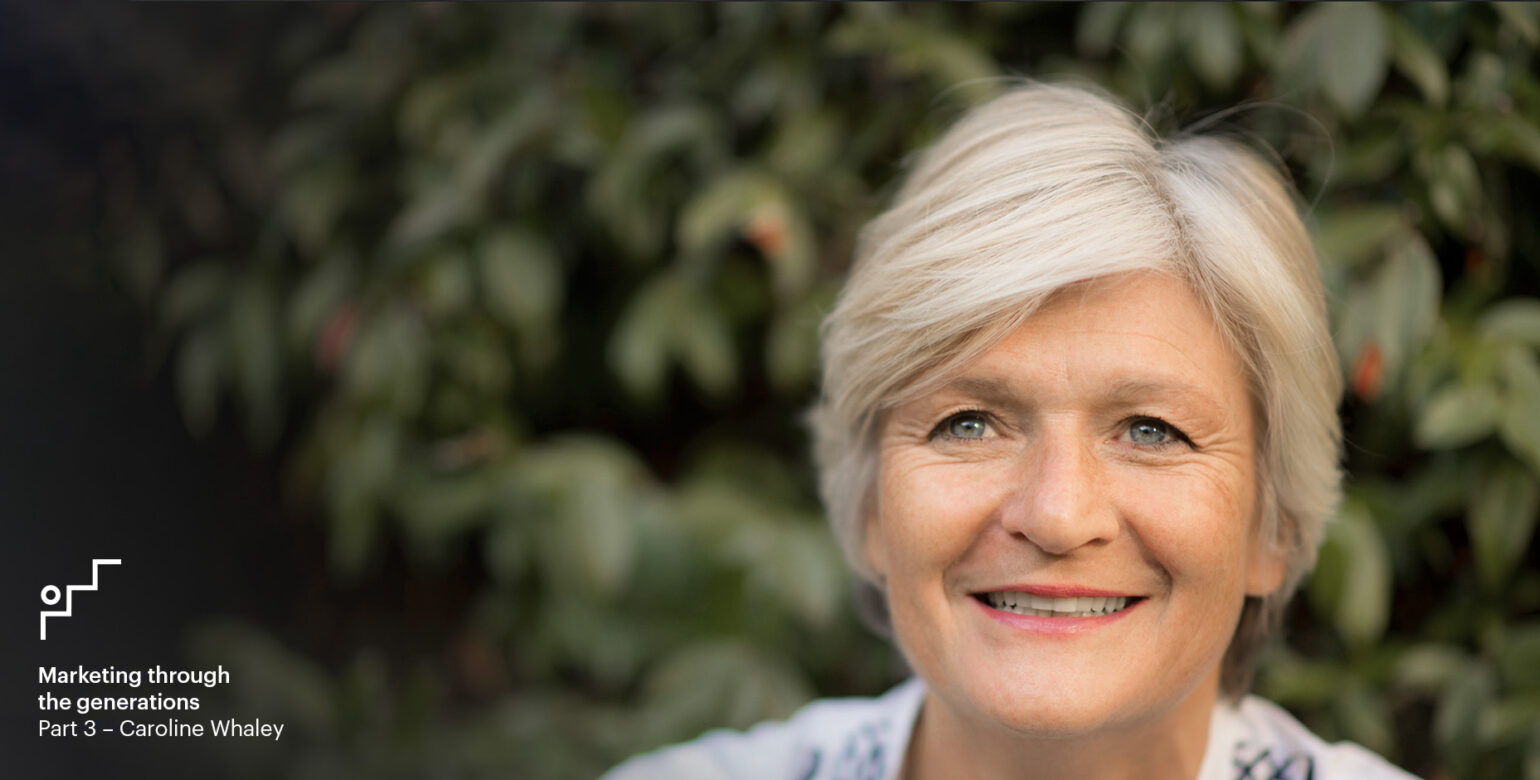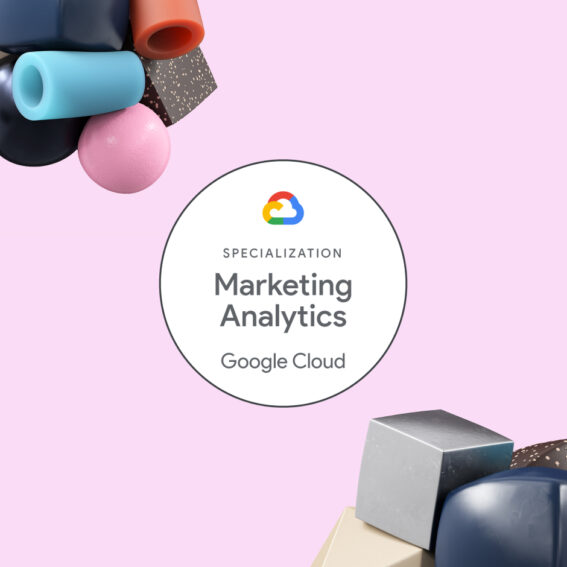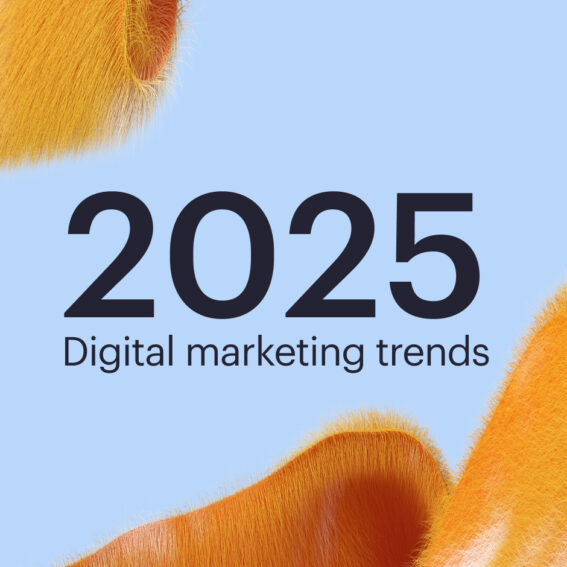Marketing through the generations: Caroline Whaley

Isabella Dodkins
Group Marketing Manager
Time and time again, we hear marketers cry the death knell for this and that trend. How many of you have attended events entitled ‘The future of (insert industry marketing here)’ or had your LinkedIn feeds saturated by the next hack that’s going to transform your way of working? Too many of you I bet.
The idea behind this series is to show the enduring principles that can be applied to any marketing strategy. We ask the experts who have literally ‘been there, done that’ to see what you as marketers should really hang your hat on.
Next up in our series is Caroline Whaley, outdoor enthusiast, former Nike Marketing Director, GM for the Nike Foundation and now co-founder of the women’s empowerment movement, Shine for Women. Throughout her career, Caroline has made it her business to bring an understanding of what being human means into the workplace. Whether that’s building brands with an appreciation for what makes people tick, to empowering women to transform companies through embracing their true selves.
Read on or watch the video below to hear what Caroline thinks are the biggest challenges that faces our industry and the trends that will endure for generations to come.
Experiencing problems watching the video? Watch the full interview here
At which point in your career did you become aware that you wanted to work in marketing?
I have to be really honest, I’d have to work quite hard to explain my career in a linear way – because it wasn’t at all. Everything I’ve done is because I’ve been in a position where something’s come to me which has just excited me, so I have followed everything based on my gut, or my heart, but never by my head (or my wallet for that matter).
For the first 10 years of my career, I worked for a company called PGL in the outdoors industry, doing a bit of marketing, but mostly within recruitment and HR. So I ran the programme recruiting the 3000 or so seasonal staff each year and progressed to an HR role within the head office. I absolutely loved working there, but there just comes a point in most jobs where you run out of runway – and this was a small company – so after 10 years I moved on to my MBA.
After my MBA, I wasn’t quite sure what I wanted to do. I knew I wanted to change function or change industry, but I never imagined I could do both. I’d learned that I had a brain, that I was good at getting people together and making things happen – but where that would lead, I wasn’t sure. Then during my degree, I met a headhunter for Nike while researching outdoor clothing in the Lake District, they suggested I would be a great fit for them. And so, after a few months flying back and forth to Amsterdam – and many interviews later – I landed the position as Head of Consumer Insights for Nike Europe. I think actually it was a natural shift from HR: What you learn there is to really understand people and what makes people tick. So that was my route into marketing, within Nike, and it was a dream. It was brilliant and I spent the next 17 years there in all sorts of amazing roles.
17 years at Nike? That’s a phenomenally long time, even 10 – 15 years ago, that would have been a long time!
I know, and I never imagined I would last that long. I thought they would work out that I was a fraud pretty quickly. But it turns out I was actually pretty good at it and I stayed because every couple of years there was a new opportunity. So two years in consumer insights, then two years back in the UK for women’s sport, then to London to run the launch of Nike town. I don’t think I ever did a job longer than three years there – there was always something new and exciting. I mean, just incredible roles; Europe for directing Nike running, Toronto for Nike Canada, Portland for Americas, Latin America and Canada, London again for leading the Running business and the Olympics and then I had this amazing opportunity to take everything I had learned about building a brand and apply it to solving world poverty. I mean, talk about a brief!
That’s a brief! And a rare opportunity to actually do something extremely meaningful with the toolbox that you have acquired.
Absolutely. I met the CEO of Nike, Mark Parker, at that time, and I asked, “Why me?” He said, “I don’t want you to become a student of International Development. That’s not what I want you to do. I want you to take 14 years of building a brand and go to work.”
And that’s how the Nike foundation was established, it was focused on the role that adolescent girls play in eradicating global poverty. I took all the marketing skills I had learnt and I spent the next three years building brands with girls in Africa, to empower them and shift social norms. In one way it was a radical shift in my career, in another, I was just recycling my skills to think about the role that brands play in driving behavioural change.
Over this incredible period of building all these brands, is there anything that has fundamentally changed during this time?
I think marketing has changed. I don’t think building a brand has changed.
Of course, the tools that we had in our armoury when I started were different. I think back to when we launched Nike town in 1999, we had no digital strategy. We had out of home campaigns, we had teaser campaigns, we had Minis running around London with our campaign, we had TV, we had radio and we were the masters of integrated marketing. That was marketing at its best – everything just lined up.
That was the heyday of marketing I think, having a powerful brand that we built every single day. From the way the telephone gets answered, to the doormat at the reception – everything was about the brand. I believe great brands live and breathe their values and make that reality for every touchpoint.
That being said, nowadays, I think if you want people to part with their money, people need to feel that they are buying into something that has more meaning to it than just purely making money. In the same that way that what we do around diversity is not just about attracting better and better talent. Companies are not only doing it because it’s the right thing, and that it makes them more creative, but they also know their corporate reputation depends on it – that matters. There isn’t a brand I work with that isn’t thinking about how they develop their brand in a way that has real meaning for their consumers. The next generation won’t go and work for companies who don’t put purpose at the heart of who they are and I think consumers will vote with their wallets. Making money and doing good doesn’t have to be mutually exclusive.
So in what ways do you think digital marketing has changed the industry?
I think marketing has become a much more transactional industry. Which, of course, has its good parts. You can do marketing campaigns so much cheaper than you ever used to and with that instant impact that you couldn’t necessarily do before. However, it has its tradeoffs.
The concept of long term brand building is nowhere near as strong as it was. So if you look at a lot of CMOs nowadays, they’re not brand builders. They’re very much transactional marketers, and I do think that brands still really need this to succeed, to stir emotion, and that isn’t a transactional thing. You don’t build relationships with people through one-off savvy conversations – it takes time and it takes building trust. But then again, I can argue with myself on this one, because maybe this marks the end of long-term brands. Short-term brands may come and go but we’ll all be happy with that – who knows? But I hope not. Trust should always be at the heart of relationships with consumers.
I remember in London around 2000, we tried to build our first social network for young people to meet up and play football in the parks. That was the first time we had a digital strategy, I would say, as part of our marketing. Since then, of course, digital has just skyrocketed. I can remember there being a moment when Tiger Woods won the Masters, and somebody created a little short video with ‘Just do it’ at the end, and it went viral, but it hadn’t come from us or our team.
And that was the first time we suddenly realised that actually, you know, you’re not as in control of your brand as you were in the days of only TV, radio or print. That could have been really scary or it could have been something that you take advantage of, and in this instance, Nike chose to embrace it.
How would you encourage marketers to engage in genuine connections with their core audience?
Is all about putting yourselves into the shoes of a consumer. It’s not difficult. It’s about empathy, it’s about listening, it’s about really understanding what makes people tick. Consumers aren’t going to create your products for you, they’re not going to innovate for you. But understanding what makes people tick is the ultimate way to make great products, to make great communications. If you can show people that you really care, that you’re listening to them, that way you can make magic happen – you really can.
How about now? Tell us more about Shine and the movement you’re spearheading within businesses?
My friend Anna and I started Shine for Women with a passion to make the corporate world more human. And really, one of the main ways of doing that was to get more women to the top. Most organisations don’t have trouble recruiting 50% 50% men and women at lower levels, but then it’s harder for them to develop a more diverse leadership team. We work with around 10,000 women worldwide, and through transformational coaching and workshops, we actually help them develop clarity, confidence and strong connections with each other – with a view to them thriving and working their way through their organisation.
And by the way, when I say, human, there’s all the good stuff about being kind and compassionate. But there’s also being flawed, messy and making mistakes. This sometimes gets missed in the conversation. We encourage everyone to turn up as their whole messy selves, personal, professional – bring it all.
What advice would you give to someone at the beginning of their marketing career?
I would definitely say do it. It’s an amazing industry to be in and a really fun one. I would also say work agency-side and client-side. Getting experience on both sides of the fence can help you build empathy and richness in your work.
I have a lot of people come to me within this industry and say they’ve absolutely loved it but they’re looking for something with more purpose. My advice to them is to say, how can you bring more purpose into the work you do? Because every brand you work with now has to have a purpose. You can’t just rock up without purpose at the heart of your brand. So I would say don’t fall into the trap of marketing for marketing’s sake. Actually, do better. Make brands better.
Conclusion
The enduring message through this interview is that humankind plays a huge part in your career marketing or otherwise. Having empathy and an understanding of what makes humans tick can create great brands – and great businesses.
Stay up to date with the next instalment of marketing through the generations by following us on social media or learn more about how you can get involved with Caroline’s movement at Shine for Women.
Many thanks to Caroline for sharing her thoughts and insights with us.
Additional insights
When we are driving brands from a corporate perspective and then suddenly I go in Africa and suddenly nothing works as you expect to. It was a beautiful simplicity to it. It took it back to basics. What are we going to do to empower young women and change social norms? How do we measure this in a responsible way?
Then actually, we had this amazing moment when we had this radio show for girls in Rwanda where we would have listening circles for girls who would come and listen to the radio. The idea was that they could dial in and ring in and ask questions. We had this amazing moment where the girls were ringing in, not to ask questions, but to give the answers. And you suddenly realised that they were passing on the knowledge that we had given them and there was a simplicity about that. There was a moment of recognition of empowerment, that is how you measure it. When a girl starts to pass on knowledge to the next one.
Then that night we went to a bar in Kigali that night and they had a cocktail named after our magazine, that was another sign for us that we had actually we had got embedded into culture . At its core, we’re just trying to create those little shifts in behaviours that actually if we keep our eyes and ears open we’ll find it that way rather than making it more complex than it has to be.


